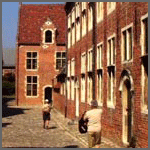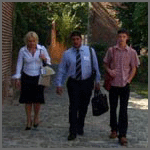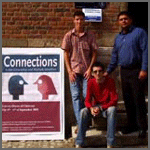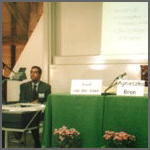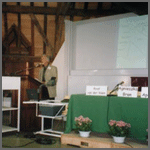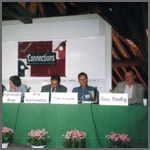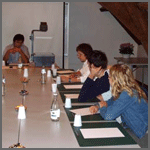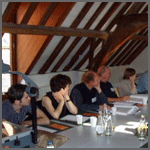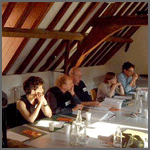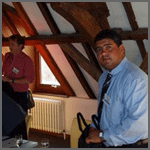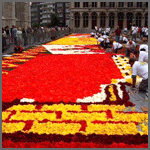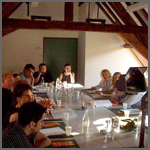Connections
is about the relationship between individuals and their communities,
between citizens and the state, between the local and the global,
in a transforming world. These relationships are nowadays analysed,
criticized and problematised by researchers, policy makers and commentators
in the media. In the conference were connected the viewpoints and
findings of the research community to these ongoing debates (see also:
www.surrey.ac.uk/education/etgace).
Connections
offered a forum for inter/multidisciplinary contributions focusing
on societal learning strategies related to these transformations.
Researchers from various disciplines was invited, including psychology,
sociology, ethics and philosophy, political science, history, anthropology
and education.
Connections
is also about linking the research community to questions raised by
the European Commission. Therefore, the conference themes are closely
related to the European Framework Programme 6 (FP6) and Priority Area
7 ‘Citizens
and Governance in a Knowledge Based Society’ which aims
at supporting the development of strong networks in the European Research
Area.
Connections
is about networking creative researchers willing to get involved in
this European programme and who wish to engage in innovative research
methodologies and to collaborate on these themes in various ways:
through research projects, conferences, seminars, exchange of staff,
joint publications, etc..
Connections reflect on societal transformations which affect us all
nowadays such as migration, globalisation, European integration, participatory
forms of governance and citizenship, environmental degradation and
sustainable development, the emergence of a knowledge based society.
